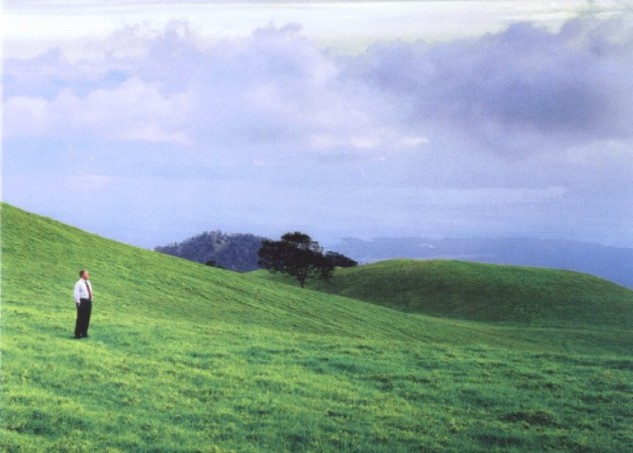
Spending time on preparation for travel will greatly increase the chances of fully enjoying traveling while avoiding those scary Oops moments of “I really wish I would have taken care of this while at home”. Here’s a to do list of preparation for travel in order to have a much smoother travelling experience:
- Passports. When reviewing your passport, check the expiry date. Some countries won’t let you in if your passport expires in six months, so make sure it’s valid for longer than your scheduled return, and if not, renew it. Check there’s enough blank pages for all the stamps and visas. Check it’s in good shape, too – if it looks suspiciously old, you might have problems at the borders.
- Visas. Check the regulations at your destination countries. Visa requirements and conditions will probably affect your travel itinerary (due to the limitation for the length of stay and expiry dates), so it is well worth the time to research before traveling. Sometimes you can only get a visa in embassies in your own country, so you have to arrange it at home, and not while on the move.
- Credit cards. This is the safest and most comfortable method to get money so it’s essential to keep credit cards checked. Know their expiry dates. If they’re almost out, take the opportunity to change them and try getting some extra benefits in the meantime (negotiate less commissions for ATM withdrawal, currency conversion, and monthly fixed fees). Check that your credit card will be usable wherever you’re looking to go (Visa and Mastercard are most commonly accepted). Check the shape your card’s in too, you don’t want it to fall apart in a cash machine. Consider carrying a backup card, and make sure you have enough actual credit too for your travelling budget.
- Travel insurance. Usually you can only sort this out when you’re at home, insurance companies won’t often consider insuring you while already travelling. Travelling insurance is well worth the expense. Read the fine print, know what it covers and what it doesn’t. Does it cover your belongings? Does it cover riding on a motorbike? Choose a good plan that’ll cover wherever you’re looking to go, and whatever you’re looking to do.
- Flights. Pick a good one in advance, take your time to browse for a wider variety of quality and prices. Don’t wait for the last moment, as good prices usually appear when you are flexible with dates and locations.
- Bureaucracy. Sort out bank pending issues, sign necessary papers, arrange your taxes, social insurance, paid subscriptions and cancellations. Also, read all your mail that you received while you’ve been away and check how to switch from receiving physical mail to emails from banks and other companies.
- Equipment. Take the time to check the specific characteristics of your next stop (like health issues and weather that effects clothing choice), to make sure you have the necessary equipment relevant for your destinations.
- Backup your data. Constantly making backups for your data while on the move is critical and you can do so by using the cloud services and external drives. However, when at home, take advantage of finally having a secured physical location, and backup your important information and files on physical copies that should be left at home before leaving. (DVD, external drive, your PC)
- Health issues. It’s cheaper and simpler to get all your health matters sorted at home. Doing it abroad is riskier and there are more barriers (money, language, culture, etc). Don’t delay, and don’t leave it for the future when you’re out of your comfort zone. Take your relevant vaccinations, make sure you’re stocked up on necessary medicines. We already talked about the risks of getting medicine abroad, it’s a lot better to sort this out while at home. Here is an article covering taking care of your health while traveling.
- Family and Friends maintenance. Nomads don’t usually spend much time in their home base, so use the time wisely. Catch up with your friends, spend time with close family. Since time is limited, and friends are sometimes plentiful, organizing meetings with various people will save you time and make you a nomad social star. Staying with your parents or close family in the short period you are at home might be the best way to go if you can keep your sanity while doing so (it saves you money and allows you to spend more time with them).
- Revenue sources. Sometimes you’ll have to stay a little longer and save up – you already know people and have the right contacts to work a bit and stock up on cash. Make sure you have enough for your next round of travelling.
- Travelling at home. Usually, we nomads don’t regard our homes as a travel base, but why not? You’ll probably be able to borrow a car, go camping, set out and explore the corners of your own country that you perhaps haven’t seen before.
So that’s your crucial preparation for travel checklist. Us nomads always get itchy feet – but coming home is important emotionally and administratively. Just don’t forget to get back on the road when the time is right!



ugh I live in America but I really want to travel Europe. But it would be easier to travel America because I wouldn’t have to worry about currency or Visas or anything like that. But Europe has so much more culture I want to explore. Then again America might be easier because the only language I know is english and I’m really bad at learning other languages. Agh
Alex,
come on 🙂
Language, Visas? that’s the small things that will determine if you are going to choose USA although your dream destination is Europe??
go to Europe, things will work out..
Good luck!!